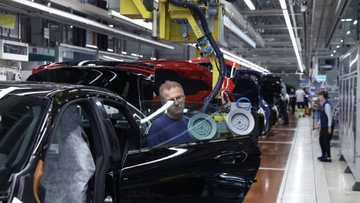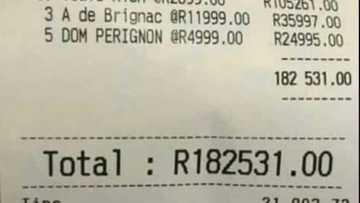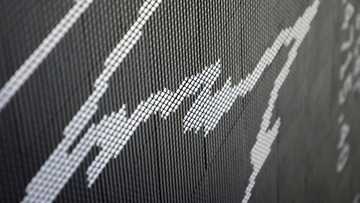Prepaid electricity rates in South Africa 2024: how does it work?
Many people do not understand the prepaid electricity rates in South Africa. Many have complained about the variation in the billing system across various parts of the nation. If you do not understand why the bill seems higher in one location compared to another, fret not, as this article explores how the billing system works.
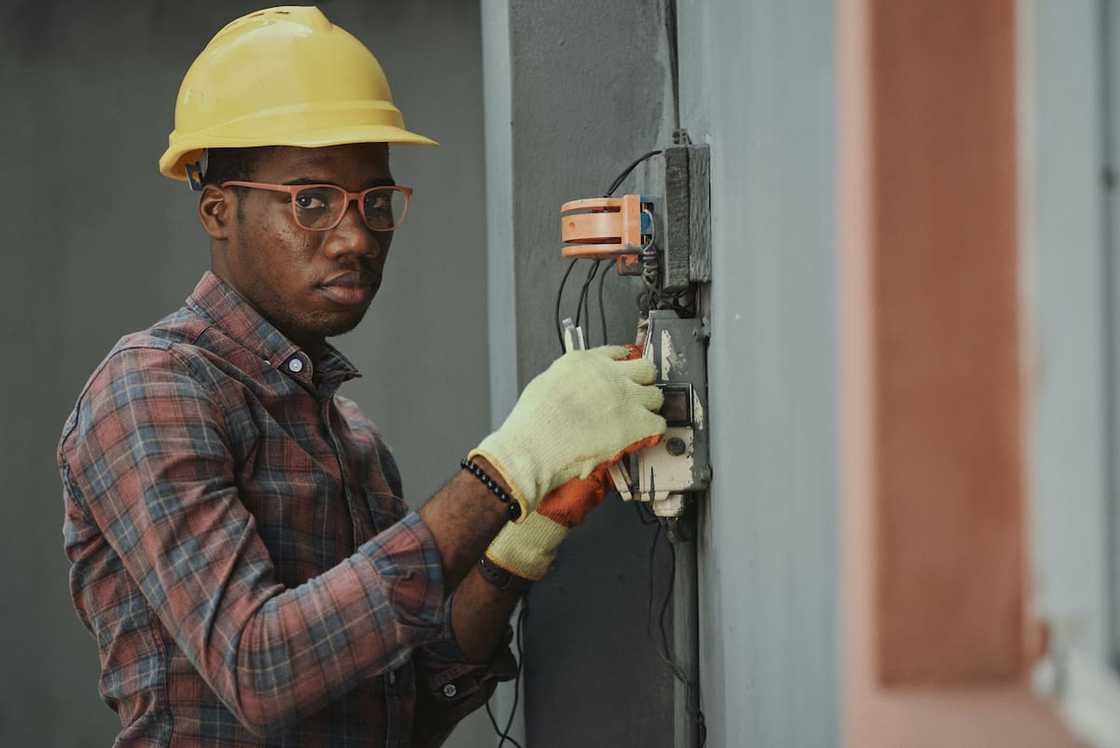
Source: UGC
TABLE OF CONTENTS
It is prudent for all South Africans to know that prepaid electricity rates in the country are not standard. There is no general charge for everyone. Instead, there are tariffs that vary from one municipality to another. Note that Eskom charges its clients directly in some urban areas.
Prepaid electricity rates in South Africa in 2024
The amount you pay monthly for electricity in SA as a prepaid client is dependent on your usage. This means that households or businesses that consume more power pay more than those that use it sparingly.
The prepaid electricity rates per unit in South Africa were recently reviewed. The price of electricity is higher than it was in 2022. Below is a breakdown of the new rates.
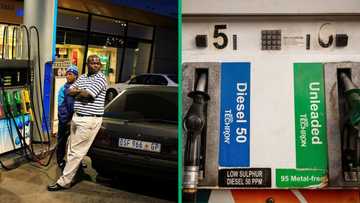
Read also
Petrol prices decrease for 2nd time in 1 month, South Africa anxious about possible future increases
Residential prepaid customers in Johannesburg
In 2023, City Power increased the residential prepaid tariffs by 7.47% as per the NERSA guideline increase.
This means that residential prepaid clients consuming an average of 350kWh per month will pay R44.37 more compared to last year.
This is because the total charge increased from R593.92 to R638.29. If you do the math, households consuming 350kWh or less monthly are now paying an average of R1.8237/kWh compared to R1.6969/kWh in 2022.
Similar to previous years, the prepaid electricity rates per unit are based on NERSA-prescribed tariffs and blocks.
- Block 1: usage of 350kWh or less
- Block 2: usage of up to 500kWh
- Block 3: usage of above 500kWh
The new rates are detailed in the table below. Note that the rates are given on an Assumed Monthly Usage (kWh) of 700.
Block | Size | Tariff (c/kWh) | R (VAT exclusive) | R (VAT inclusive) |
Block 1 | 350 | 182.37 | 638.29 | 734.03 |
Block 2 | 500 | 209.19 | 313.79 | 360.85 |
Block 3 | >500 | 238.36 | 476.73 | 548.24 |
Sub-total | - | - | 1,428.80 | 1,643.12 |
Note
- If you purchase 350kWh at the beginning of the month, you will pay the block 1 rate, i.e., R638.29.
- If you add an extra 350kWh in the course of the same month, you will pay R790.51 because you will be using block two and block three tariffs. Always remember that you pay more when you consume more.
- There is no basic charge for residential prepaid clients.
- The Average selling price (c/kWh) is R234.73 (VAT inclusive).
Residential conventional 60 A customers in Johannesburg
Residential conventional clients will also pay 7.47% more on their monthly bills. Below is a table showing the new rates based on an Assumed Monthly Usage (kWh) of 700.
Block | Size | Tariff (c/kWh) | R (VAT exclusive) | R (VAT inclusive) |
Block 1 | 500 | 175.38 | 876.91 | 1,008.45 |
Block 2 | 1000 | 201.27 | 402.54 | 462.93 |
Block 3 | 2000 | 216.12 | 0 | 0 |
Block 4 | 3000 | 228.02 | 0 | 0 |
Block 5 | >3000 | 239.21 | 0 | 0 |
Sub-total | - | - | 1,279.45 | 1,471.37 |
Service charge | - | - | 181.94 | 209.23 |
Capacity charge | - | - | 535.98 | 616.37 |
Total charge for the month | - | - | 1,997.37 | 2,296.98 |
Energy only (c/kWh) | - | - | 182.78 | 210.20 |
Average selling price (c/kWh) | - | - | 285.34 | 328.14 |
Note
The rates above are for Johannesburg. Other cities and municipalities may have different rates. Even so, the Jo'Burg rates will give you an idea of what to expect when it comes to prepaid electricity bills in the country.
Latest NERSA/ ESKOM update
NERSA recently determined the following tariff increases to be applied to the Eskom direct customer tariff charges and Eskom tariffs applicable to local authorities.
Customer category | Percentage increase |
Local authority tariff charges: 1st July 2023 – 30th June 2024 | 18.49% |
Eskom direct customers: 1st April 2023 – 31st March 2024 | 18.49% |
All tariff charges except the affordability subsidy charge and Homelight 20A | 18.65% |
Homelight 20A | 10.00% |
Affordability subsidy charge | 29.53% |
From the table above, South Africans should not be surprised to pay more for the same number of units starting 1st July 2023.
What are the rates for prepaid electricity?
The average prepaid electricity rates per unit are R234.73 (VAT inclusive) for every c/kWh or R1.8237/kWh for households consuming 350kWh or less per month.
How do prepaid electricity rates work in South Africa?
The rates apply based on block tariffs. The price per unit or kilowatt hour (kWh) is the cheapest in the first block. As usage increases, the tariff moves into blocks two and three, where the price per unit is higher.
What are the prepaid electricity rates in Johannesburg?
The prepaid electricity rates in Johannesburg are detailed in the previous section of the article.
How much is 1kWh of electricity in South Africa?
The average rate is R1.8237/kWh for households consuming 350kWh or less per month. You may pay more or less, depending on your city or municipality.
The prepaid electricity rates have been steadily rising in the last couple of years and are expected to go higher soon. We hope you now understand how the rates work in SA.
DISCLAIMER: This article is not sponsored by any third party. It is intended for general informational purposes only and does not address individual circumstances. It is not a substitute for professional advice or help and should not be relied on to make decisions of any kind. Any action you take upon the information presented in this article is strictly at your own risk and responsibility!
READ ALSO: How much are braces in South Africa? Braces price and infographic
Briefly.co.za recently published the cost of braces in South Africa. Many people desire to have the perfect smile. However, not everyone has a naturally perfect set of teeth.
Some people have crooked teeth that interfere with their smiles and self-esteem. Fortunately, certified orthodontists can reverse the situation.
Source: Briefly News

Priscillah Mueni (Lifestyle writer) Priscillah Mueni is a lifestyle and entertainment content creator with more than 4 years of experience. She graduated from Meru University of Science and Technology with a Bachelor of Technology in Civil Engineering in 2019. In 2023, Priscillah finished the AFP course on Digital Investigation Techniques. She has been writing articles on Briefly.co.za since 2019. Email: pshmueni@gmail.com

Cyprine Apindi (Lifestyle writer) Cyprine Apindi is a content creator and educator with over six years of experience. She holds a Diploma in Mass Communication and a Bachelor’s degree in Nutrition and Dietetics from Kenyatta University. Cyprine joined Briefly.co.za in mid-2021, covering multiple topics, including finance, entertainment, sports, and lifestyle. In 2023, she finished the AFP course on Digital Investigation Techniques. She received the Writer of the Year awards in 2023 and 2024. In 2024, she completed the Google News Initiative course. Email: cyprineapindi@gmail.com


